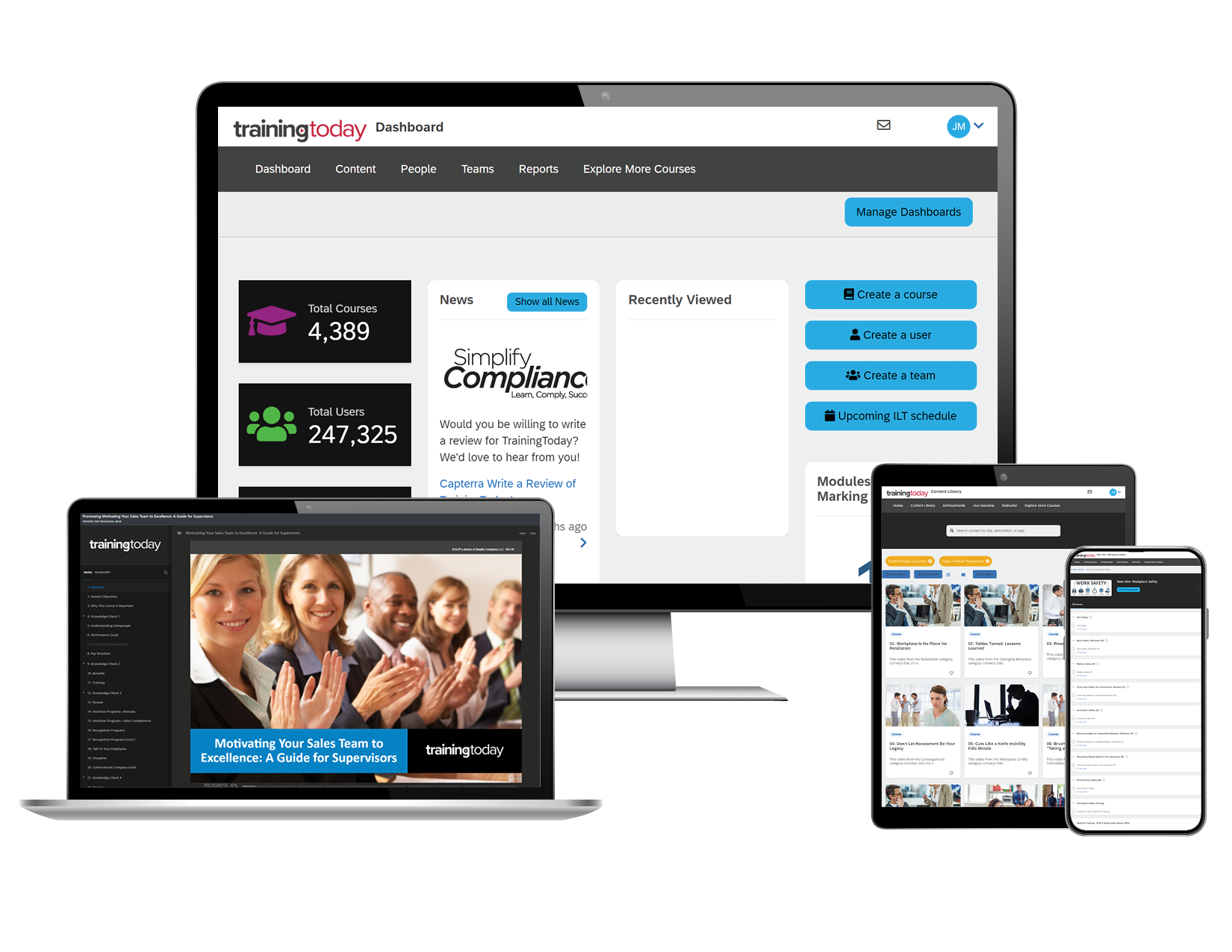
Employee training for your workforce
TrainingToday is a comprehensive and convenient online training solution designed to empower organizations with the knowledge and skills necessary to meet their compliance and professional development needs. With a vast library of engaging and interactive courses, TrainingToday offers a flexible and scalable platform that caters to the unique training requirements of businesses across various industries.
Get startedTargeted learning experiences that scale

-
Identify skills gaps
Strengthen staff performance with focused instruction in critical strategic areas.
-
Achieve regulatory compliance
Meet requirements for mandatory training, including those specific to your state.
-
Reduce costly turnover
Nurture existing talent so your talent is more confident and competent in their roles.
-
Monitor progress and measure ROI
Leverage state-of-the-art tracking to ensure training adoption and effectiveness.
-
Ensure critical consistency
Standardize training across a disparate workforce so no one gets overlooked.
Transform the way you train
Through our expertly crafted content and interactive modules, TrainingToday ensures that employees not only comprehend vital information but also gain practical skills that can be immediately applied in the workplace. Our platform leverages the latest technologies, including multimedia elements, quizzes, and assessments, to foster an engaging and effective learning environment. By partnering with TrainingToday, organizations can optimize their training processes, eliminate the need for expensive in-person training sessions, and stay up to date with the ever-changing compliance landscape.

-
In-house subject matter expertise
We have a full staff of content specialists and instructional designers applying decades of experience to course creation.
-
Wide breadth of content
Choose from over 850 courses on topics critical to your business success, from soft skills to mandatory training.
-
Multi-modal delivery
We provide flexible training options to fit business needs and learner preference, including SCORM-compliant courses, microlearning, and video.
-
Intuitive technology
Our LMS combines a superior user interface with practical administrator functionality to support the adoption and measurement of training initiatives.

Flexible LMS content
Our value proposition lies in the ability to provide high-quality, on-demand training that saves time, enhances productivity, and mitigates risk. Whether it's compliance training, workplace safety, HR best practices, or leadership development, TrainingToday offers a user-friendly and intuitive learning experience that can be accessed anytime, anywhere, and on any device. Plus, all of TrainingToday's course content is SCORM-compliant and ready for upload into your LMS.
- SCORM
- AICC
- xAPI
Employee training for a variety of industries and applications
Our award-winning employee training courses provide expertise in human resources, workplace safety, leadership, business skill development, sales and customer service, hospitality, healthcare, and education.
Launching effective L&D programs one company at a time
Featured resource
TrainingToday










